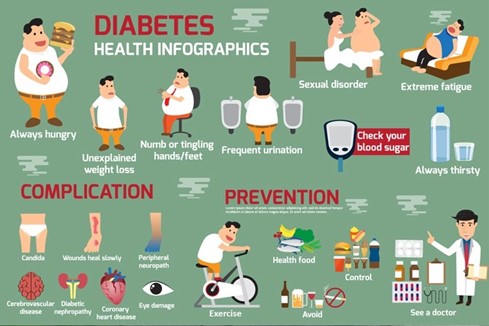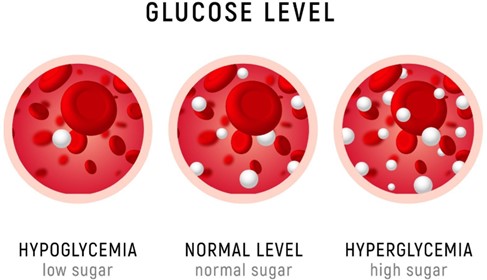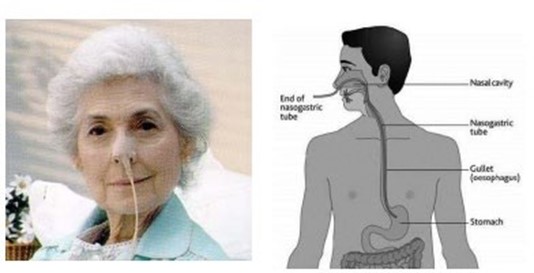The nurse is caring for a patient with newly diagnosed type I diabetes. What information is essential to include inpatient teaching before the patient is discharged from the hospital?
(Select all that apply)
use of a portable blood glucose monitor.
Hypoglycemia prevention, symptoms. and treatment.
Insulin administration.
Elimination of sugar from the diet.
Correct Answer : A,B,C,D
Use of a portable blood glucose monitor: The patient should be taught how to use a portable blood glucose monitor to check their blood glucose levels at home. This will help the patient monitor their blood glucose levels and adjust their insulin dose as necessary.
Hypoglycemia prevention, symptoms, and treatment: The patient should be taught about the signs and symptoms of hypoglycemia (low blood glucose levels) and how to treat it. This includes teaching the patient to consume 15-20 grams of fast-acting carbohydrates such as glucose tablets or juice when experiencing hypoglycemia.
Insulin administration: The patient should be taught how to administer insulin, including the timing of injections and rotating injection sites. The patient should also be educated about the importance of taking insulin regularly and the potential consequences of missed doses.
Diet: The patient should be educated about healthy eating habits that include monitoring carbohydrate intake, eating regular meals, and spacing carbohydrates throughout the day. The patient does not need to eliminate sugar entirely from their diet, but rather to consume it in moderation and balance it with other food groups.
Physical activity: The patient should be encouraged to engage in regular physical activity but may need to adjust their insulin dose or carbohydrate intake to accommodate for the changes in blood glucose levels that may result from physical activity. Reducing physical activity is not necessary, but rather adjusting to it properly with proper monitoring of glucose levels.

Nursing Test Bank
Naxlex Comprehensive Predictor Exams
Related Questions
Correct Answer is B
Explanation
The patient received 38 U of NPH insulin at 7:00 AM, and by 1:00 PM, the insulin has been active for approximately 6 hours. The patient has missed lunch, which may lead to hypoglycemia, especially with the activity of the insulin.
Sending a glass of orange juice will provide the patient with a quick source of glucose to prevent hypoglycemia. If testing is further delayed, the nurse may request that the patient be allowed to eat lunch first or save the lunch tray for later, but immediate intervention is necessary to prevent hypoglycemia. Discontinuing the evening dose of insulin is not an appropriate action and should not be considered without consulting the healthcare provider.

Correct Answer is D
Explanation
The nurse should quickly assess the patient's vital signs to check for signs of shock and instability. If the vital signs are unstable, the nurse should initiate appropriate interventions to stabilize the patient, such as administering oxygen, starting IV fluids, and providing continuous cardiac monitoring. Based on the sudden onset of severe upper abdominal pain, diaphoresis, and a firm abdomen, the nurse should suspect a possible perforation or bleeding related to the peptic ulcer. This is a medical emergency that requires immediate intervention. Therefore, the nurse should prioritize notifying the healthcare provider and preparing the patient for urgent medical evaluation.
Option A, irrigating the NG tube, is not appropriate in this situation and may further exacerbate the patient's condition if the ulcer has perforated.
Option B, elevating the foot of the bed, is also not appropriate as it does not address the patient's current symptoms.
Option C, giving the ordered antacid, may not be effective in addressing the severity of the patient's symptoms and should be postponed until the healthcare provider has evaluated the patient.

Whether you are a student looking to ace your exams or a practicing nurse seeking to enhance your expertise , our nursing education contents will empower you with the confidence and competence to make a difference in the lives of patients and become a respected leader in the healthcare field.
Visit Naxlex, invest in your future and unlock endless possibilities with our unparalleled nursing education contents today
Report Wrong Answer on the Current Question
Do you disagree with the answer? If yes, what is your expected answer? Explain.
Kindly be descriptive with the issue you are facing.
